| | | | | | | Presented By HBO | | | | Axios World | | By Dave Lawler ·Oct 15, 2020 | | Welcome back to Axios World. - Thanks for joining me! Tonight we're traveling to Europe... I wish it were under better circumstances (1,659 words, 6 minutes).
- New arrival? Sign up here.
| | | | | | 1 big thing: Europe's looming disaster |  Data: Our World in Data; Chart: Naema Ahmed/Axios The pandemic has come storming back to Europe, and hope of a return to normality is being replaced by a much more ominous prospect: the return to lockdown. The big picture: Case counts in countries like France and Spain have skyrocketed past the numbers seen during the spring peak. While that's partially due to more widespread testing, it's now clear that deaths are climbing too. Breaking it down: In the first two weeks of August, a total of 668 people died of COVID-19 across Spain, France, the U.K., Italy and Germany — remarkably low given the U.S., which has a similar population, was averaging roughly twice as many per day at that time. - Fast forward two months, to the first two weeks of October, and those countries have combined for 4,316 deaths — 6.5 times higher.
- Spain (1,622 deaths), France (1,081) and the U.K. (1,012) have been hit hardest, but even Italy (401) and Germany (200) are recording more than three times as many deaths as they were two months ago.
- Flash back to the first two weeks of April, though, and the five countries' combined death total was 44,771 — 10 times what they're recording now.
What to watch: Sky-high case counts and a reluctance to impose full lockdowns mean the question is less whether these countries can quickly return to the relative calm of August, than whether they can avoid a return to April's brutal reality. - "We're probably just seeing the beginning part of the increase in hospitalizations and deaths," which tend to lag three or four weeks behind a spike in cases, says Stephen Kessler, a researcher at Harvard who models the spread of diseases including COVID-19.
- But that doesn't mean the unprecedented spike in cases across Europe will necessarily translate to unprecedented death tolls, Kessler says, both because of increased testing and improved treatments.
The outlook is nonetheless grim. Hans Kluge, the WHO's director for Europe, said today that if the current trajectory holds, death rates will be four or five times higher in January than they were in April. - "It's time to step up. The message to governments is: Don't hold back with relatively small actions to avoid the painful damaging actions we saw in the first round," Kluge said.
But with weary populations and wounded economies, governments are highly reluctant to impose the strict lockdowns that snapped into place across Europe last March. - "The only thing that we know works and works very effectively is pretty strict lockdown," Kessler says. "That said, I do think that there's a lot we can do in the middle ground to mitigate the spread of the virus."
- It will be particularly important to prevent large gatherings that could become superspreader events, he says.
Go deeper: I discussed Europe's spike on the Axios Today podcast |     | | | | | | 2. What went wrong | | Source: European Centre for Disease Prevention and Control. Used with permission. The same politicians who are now ordering people to stay home and limit their contacts were only recently offering incentives to travel domestically or dine out. The big picture: As Europe emerged from the protective crouch of lockdown, governments were anxious to revive their economies, and people seized the opportunity to resume something approximating "normal" life. Countries like Spain and Italy opened their borders to tourists, while large gatherings returned swiftly in countries like the Czech Republic that weren't hit hard by the first wave. - As the weather began to change and complacency grew, riskier indoor gatherings became more common.
- And as cases began to tick up after a lull throughout the summer, governments were hesitant to take action that would be politically unpalatable or jeopardize an already fragile economic recovery.
In many countries, spikes have been driven largely by younger people who are less likely to become seriously ill. But at least in the U.K., cases are now rising quickly among people over 65. - The arrival of winter — not to mention the holiday season — will exacerbate the challenges.
What they're saying: "We must call especially on young people to do without a few parties now in order to have a good life tomorrow or the day after," German Chancellor Angela Merkel said on Wednesday. - "It's hard to be 20 in 2020," added French President Emmanuel Macron.
|     | | | | | | 3. Driving the news: Restrictions return | 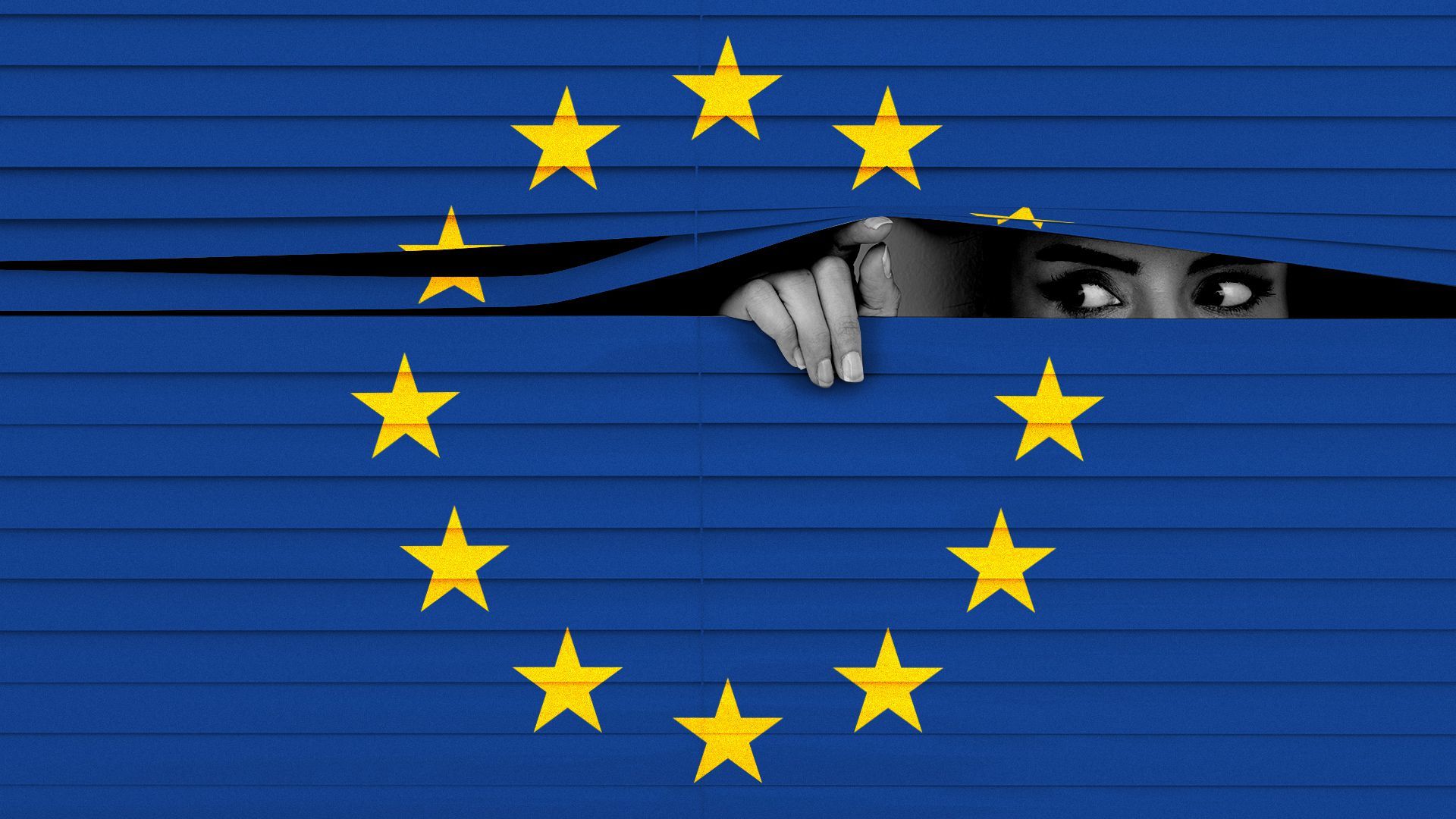 | | | Illustration: Aïda Amer/Axios | | | | Macron announced Wednesday that Paris and eight other metro areas will be under a 9pm to 6am curfew for at least the next six weeks. The big picture: Like other European leaders, he's is attempting to slow the spread through restrictions that are regional in scope and less severe than those imposed in the spring. The current uptick "justifies neither being inactive nor panicked," he said. - The Netherlands has gone a step further, closing all bars and restaurants nationwide for four weeks on Wednesday but keeping schools open.
- In Germany, Merkel announced Wednesday that bars and restaurants in harder-hit areas will have to close by 11pm, while private gatherings in those areas will be limited to 10 people from just two households.
- Catalonia has closed restaurants except for takeout, while travel in and out of Madrid has been curtailed.
- The Czech Republic — which is recording the most cases in Europe, adjusted for population — has been one of the few countries thus far to close schools. Bars are also closed.
- Poland, which is also being hit harder in the second wave than it was in the first, will introduce new restrictions on Monday under a tiered system. In "red zones" like Warsaw, weddings will be banned and gatherings limited to 10 people. In "yellow zones," restaurants will have to close at 9pm.
|     | | | | | | A message from HBO | | The Perfect Weapon: Chaos is a click away | | |  | | | | The Perfect Weapon, directed by John Maggio and based on a best-selling book by David E. Sanger, explores the rise of cyber conflict as the primary way nations now compete with and sabotage one another. The Perfect Weapon premieres Oct 16 on HBO Max. | | | | | | 4. Zoom in: Divided Kingdom | 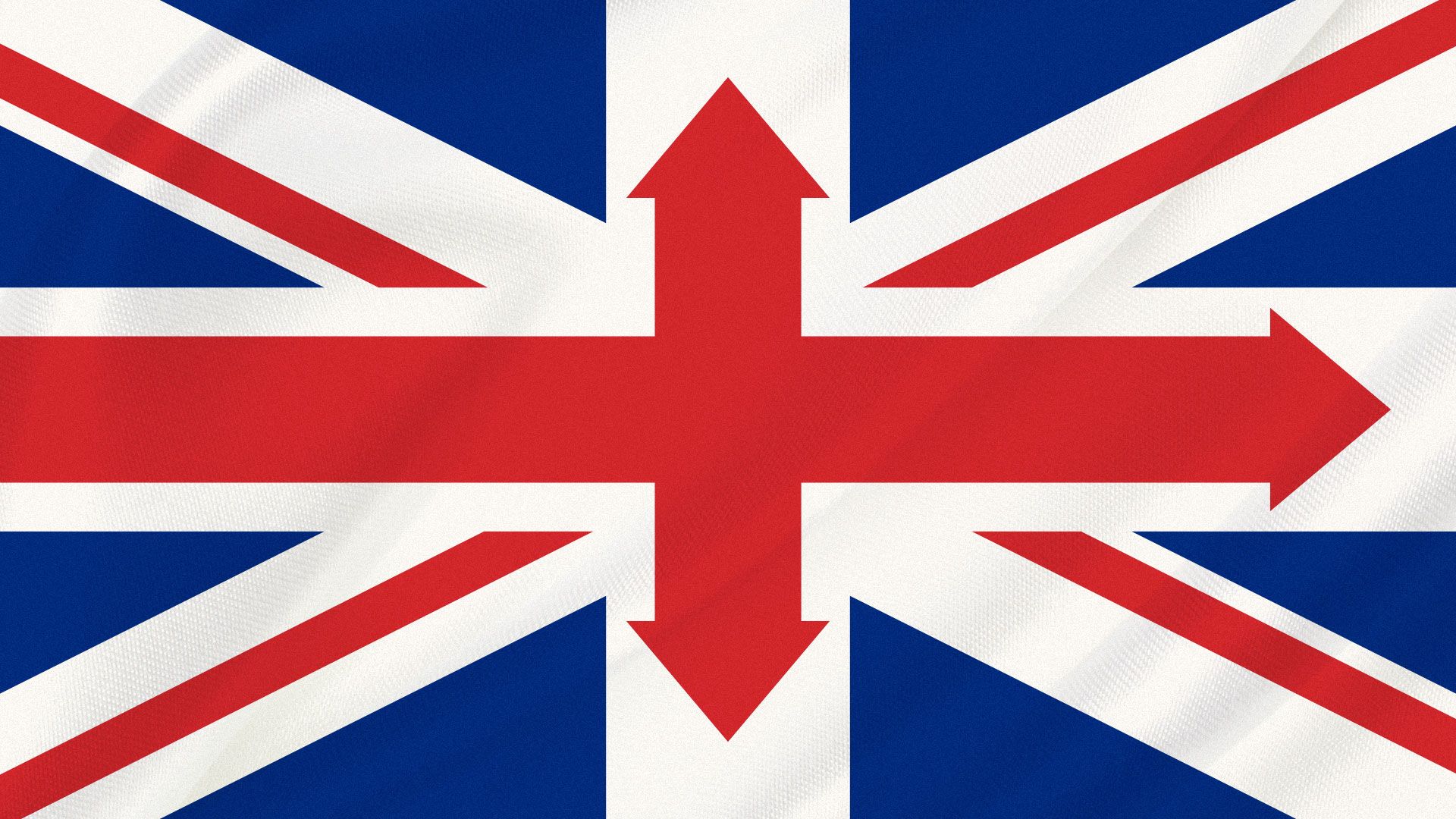 | | | Illustration: Eniola Odetunde/Axios | | | | England is also facing new tiered restrictions, with Liverpool first to enter a local lockdown and London now facing "tier two" restrictions, which include a ban on indoor gatherings involving multiple households. Other parts of the U.K. are moving more quickly. - Northern Ireland is closing schools for two weeks and shuttering all bars and restaurants for at least a month.
- Wales is weighing a "circuit breaker" lockdown and has announced a ban on travel from hot spots elsewhere in the U.K. despite vocal opposition from the government in Westminster.
- Scottish First Minister Nicola Sturgeon has consistently been out ahead of Prime Minister Boris Johnson in announcing new restrictions. Frustration with Johnson's pandemic performance has contributed to a swell in support for Scottish independence — now at a record-high 58%, according to Ipsos.
What to watch: Johnson has been caught between two prerogatives throughout the pandemic — his sober commitment to "follow the science" and his instinctive opposition to heavy-handed restrictions. - He now faces pressure from the opposition Labour Party to agree to a two-week circuit breaker lockdown, which the government's Scientific Advisory Group for Emergencies believes would reduce deaths before the end of the year by 29%–49%.
- But he's also under pressure from many in his Conservative Party to rule out any such measures.
- Amid a response seen by many as muddled, his approval rating has fallen from April's high of 66% down to 35%.
The big picture: The U.K. was remarkably united throughout the first wave. That's not the case heading into the second. Driving the news: Manchester Mayor Andy Burnham said he'd "stand firm" against plans to shift his city to "tier three" — which would see pubs closed and travel restricted — unless the government also provided economic support. |     | | | | | | 5. Global news roundup |  | | | Bolivian presidential candidate Luis Arce. Photo: Nestor Alexis Gomez/picture alliance via Getty | | | | 1. Kyrgyzstan President Sooronbai Jeenbekov resigned today, saying he did not want to "go down in Kyrgyzstan's history as a president who shed blood and shot at his own citizens." - It has been a chaotic 11 days since protesters challenged the results of an election, stormed parliament and freed a rival politician, Sadyr Japarov, from prison.
- Now, Japarov is set to take power.
2. Nigerian President Muhammadu Buhari announced that he would disband an infamous police force following mass protests that have continued even after the announcement. - The Special Anti-Robbery Squad has been accused repeatedly of violence, intimidation and torture. Protesters noted that it had been "shut down" in the past before re-forming.
- The latest protests were sparked by a video of officers allegedly killing a man.
3. The EU unveiled sanctions on six Russian officials today, including the head of the FSB intelligence agency, over the nerve agent attack on opposition leader Alexei Navalny. - Between the lines: "I still don't know who tried to murder Alexei Navalny. Unfortunately, despite its new sanctions … I suspect the European Union doesn't either," Mark Galeotti writes in the Moscow Times.
Looking ahead... - Oct. 17: Elections in New Zealand, featuring referendums on cannabis and euthanasia. Prime Minister Jacinda Ardern's Labour Party has led in the polls.
- Oct. 18: Guinea's Alpha Condé, 82, seeks re-election after changing the constitution to reset his presidential terms. At least 90 people have been killed in pre-election violence.
- Oct 18: A presidential rerun in Bolivia pits the leftist party of exiled former President Evo Morales against a centrist opponent, Carlos Mesa. Leftist candidate Luis Arce hopes to win in the first round and avoid a run-off next month that Mesa could be well-placed to win.
|     | | | | | | 6. One to watch: Thailand rises up, government cracks down | 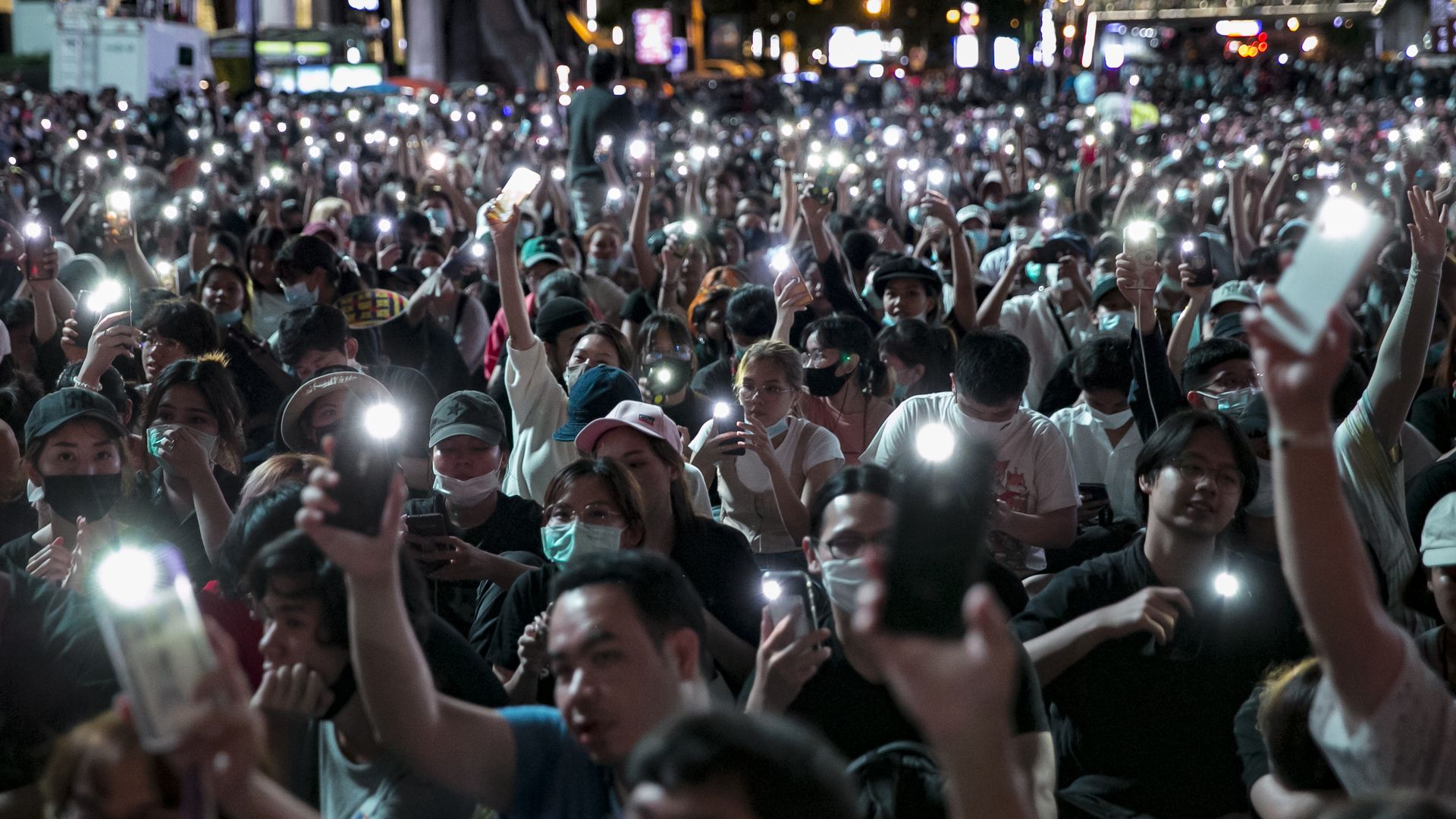 | | | Is this more than four people? Photo: Getty Images | | | | Protesters in Thailand are defying an emergency decree banning gatherings of more than four people, despite a crackdown that began on Wednesday and has seen three of the movement's most prominent leaders arrested. The big picture: The student-led protests have been among the largest in recent Thai history and the first to broach the taboo subject of monarchy reform. Now, the establishment is striking back. Driving the news: The crackdown followed a remarkable scene on Wednesday. When a royal motorcade passed through Bangkok, demonstrators shouted protest slogans and made their trademark three-fingered salute. The backstory: King Vajiralongkorn is legally immune to any scrutiny in Thailand, but the accounts that have emerged abroad (he lives mainly in Germany) portray him as eccentric and, in some cases, bitterly cruel. - He's also a massive expense to taxpayers. In 2017, he personally took control of some $40 billion in assets previously managed by the Ministry of Finance, and his political interventions in recent years have led to fears that he intends to become an absolute monarch, per the Economist.
- But he has a symbiotic relationship with the military as well as with the coup leader turned prime minister, Prayuth Chan-ocha.
Go deeper: Interview with Thailand's barred opposition leader |     | | | | | | 7. Stories we're watching | 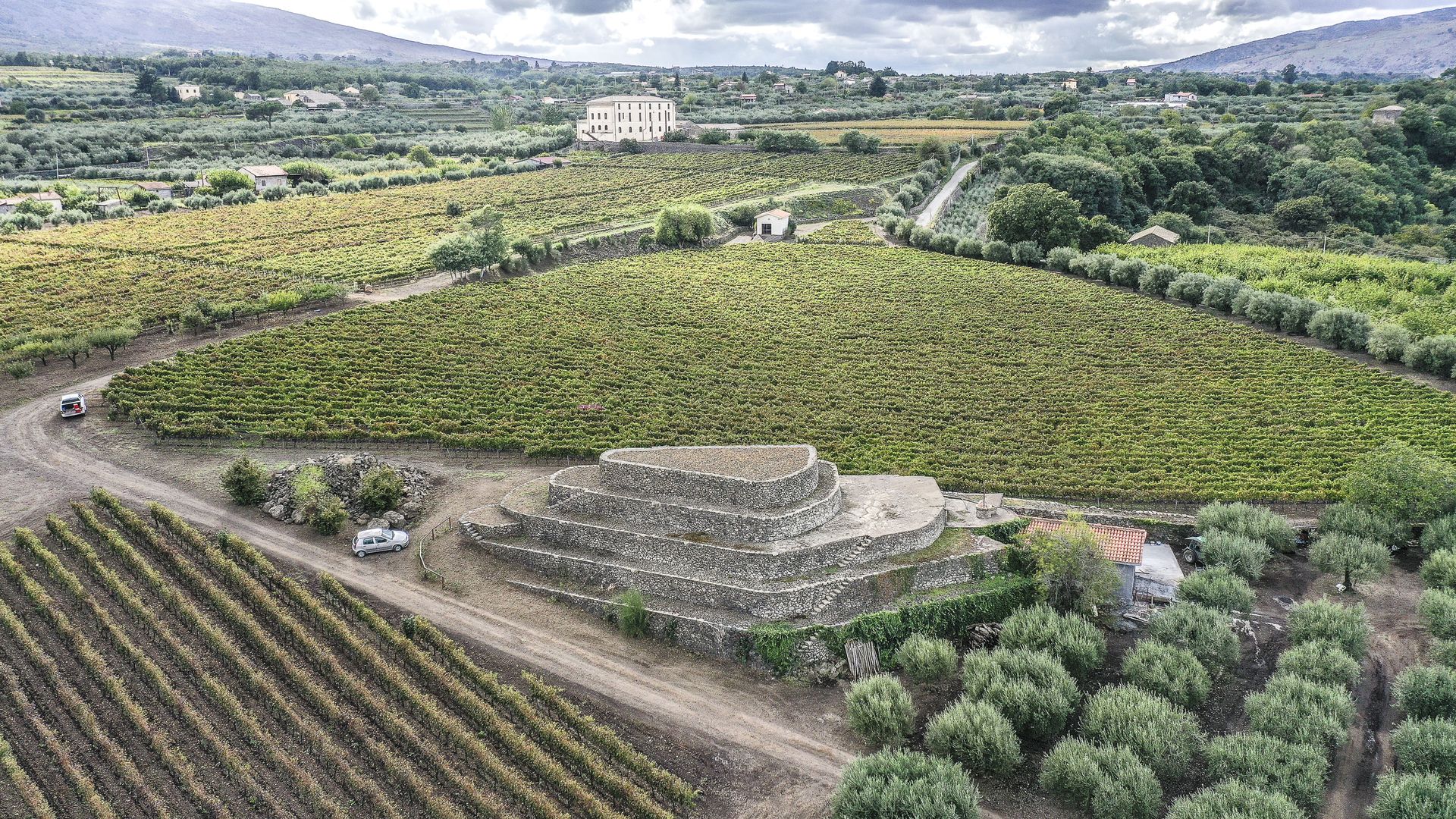 | | | Oh, to get away to Sicily. Photo: Fabrizio Villa/Getty Images | | | - As Taiwan's profile rises, so does risk of conflict with China
- China, Russia elected to UN Human Rights Council
- China's digital currency aims to leave us in the dust
- COVID is harming internet freedom, report finds
- IMF charts pandemic turmoil
- Bad news for Barrier Reef
- Eight-country accord on lunar exploration
Quoted: "It is good for a politician to look into the face of death." — Russian opposition leader Alexei Navalny to the Economist, reflecting on being poisoned |     | | | | | | A message from HBO | | The Perfect Weapon: Chaos is a click away | | |  | | | | The Perfect Weapon, directed by John Maggio and based on a best-selling book by David E. Sanger, explores the rise of cyber conflict as the primary way nations now compete with and sabotage one another. The Perfect Weapon premieres Oct 16 on HBO Max. | | | | | | Axios thanks our partners for supporting our newsletters.
Sponsorship has no influence on editorial content. Axios, 3100 Clarendon Blvd, Suite 1300, Arlington VA 22201 | | | You received this email because you signed up for newsletters from Axios.
Change your preferences or unsubscribe here. | | | Was this email forwarded to you?
Sign up now to get Axios in your inbox. | | | | Follow Axios on social media:    | | | | | |





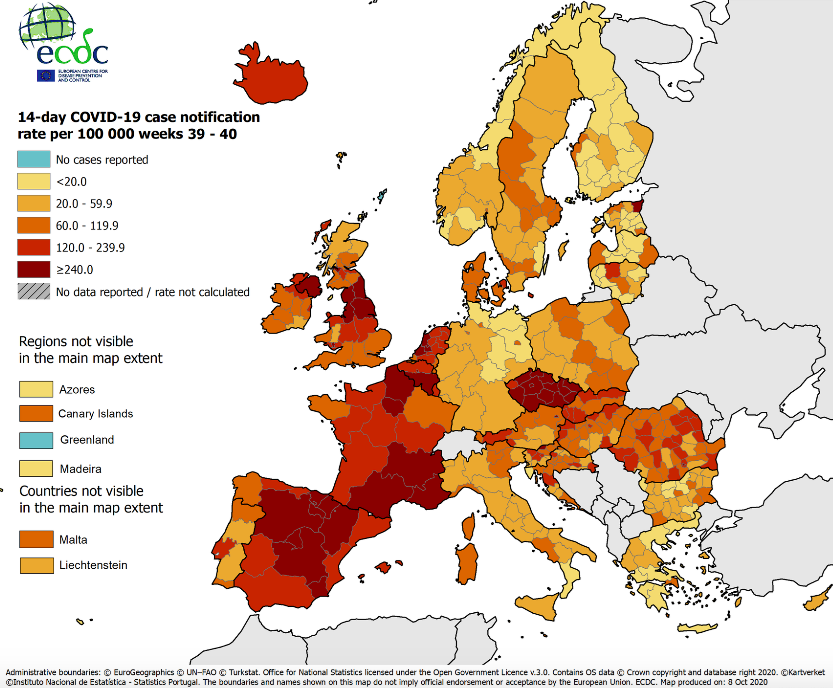





No comments:
Post a Comment